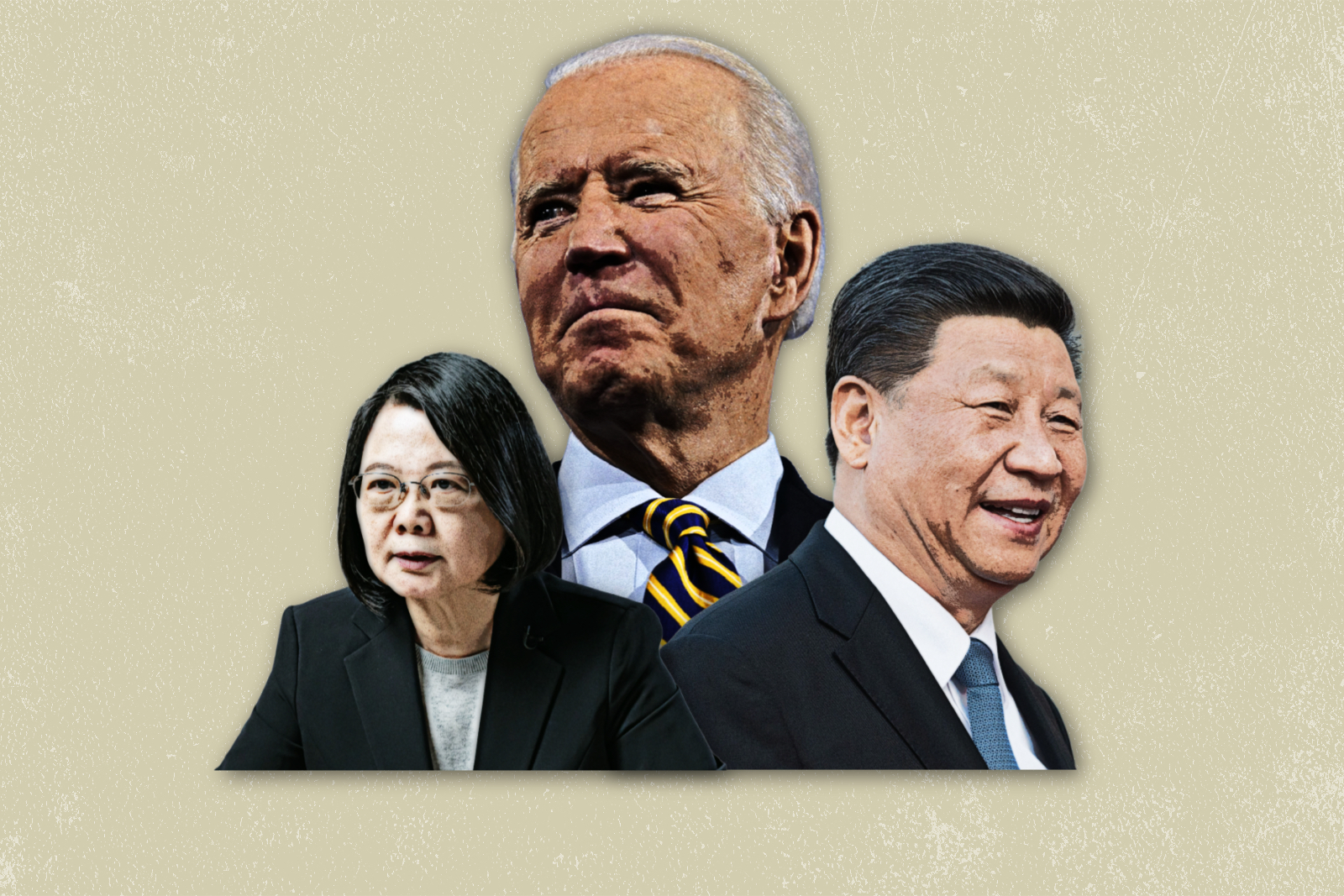
China has Painted Itself into a Corner over Taiwan
Either due to national pride or economics, Beijing is determined to take Taiwan by force if the island won’t willingly reunify with the mainland. In a speech in October to the 20th National Congress of the Chinese Communist Party, President Xi Jinping had this to say regarding Taiwan: “Solving the Taiwan question and realizing the complete reunification of the Motherland is the unswerving historical task of the Party, the common aspiration of all Chinese sons and daughters, and an inevitable requirement for realizing the great rejuvenation of the Chinese nation.”
Given that Taiwan has fully transitioned to a liberal democracy and embraces a market economy and capitalism, it is inconceivable to imagine that Taipei would want to willingly integrate back into China’s fold. In fact, a vast majority of Taiwanese reject reunification. In recent polling, only 7% of Taiwanese “support unification now or in the future.”
Meanwhile, while Washington does not have a security treaty with Taiwan, which would obligate it to defend the island, President Biden has expressly stated that the United States would defend Taiwan in the event of a Chinese invasion.
Geopolitical tensions between Washington and Beijing are growing by the day. Both countries appear to be on the path to war — with such a conflict being fought in multiple domains should it become a reality. While it remains to be seen as to whether Washington would ultimately come to Taiwan’s defense under such a scenario, the U.S. would almost certainly impose punishing economic sanctions on Beijing. Because China holds 3.2% of U.S. debt at $980.8 billion, what can it in turn do to the U.S. as a form of retaliation? China’s weaponization of U.S. national debt and dumping of U.S. Treasurys could cause U.S. interest rates to spike and potentially slow U.S. economic growth to a crawl.
However, the vast majority of U.S. national debt is owned by U.S. investors and government agencies, such as the Federal Reserve, Social Security, and Medicare. While Beijing could sell off its portion of the U.S. national debt, it may not do so given that China is an export-driven country, and such a move would likely cause more damage to the Chinese economy than to the U.S. economy. China benefits from a trade surplus with the U.S. Beijing will almost certainly try to increase its ownership of U.S. Treasurys as this will enable it to maintain its competitive advantage by selling inexpensive products to American consumers.
Another option that China has in its arsenal is its ability to blockade the Taiwan Strait. The waterway is one of the most important and busiest maritime shipping lanes in the world. Nearly half of the world’s container ships have transited through the strait in 2022. The closure of the strait will almost certainly bring about severe disruptions to shipping and global supply chains, which will adversely impact the global economy. Additionally, the Taiwan Strait serves as the main conduit for ships transporting goods from China, Japan, South Korea, and Taiwan to destinations in North America and Europe. Such a move will cause severe damage to the Taiwanese people and its economy. It will also cause the global economy to contract. However, given China’s status as the largest manufacturing hub of goods, the damage stemming from the closure of the strait would be immense to its own economy.
China’s possible blockade of the Taiwan Strait could prompt a reciprocal response by the U.S. and its allies and bring about the blockade of the Strait of Malacca, which is a key energy chokepoint, as close to 90% of petroleum transits through the waterway. The Strait of Malacca runs between Indonesia, Malaysia, and Singapore linking the Indian Ocean with the Pacific Ocean via the South China Sea. The strait is the shortest maritime route between Persian Gulf energy suppliers and Asian markets. Former President Hu Jintao highlighted China’s vulnerabilities and concerns in 2003 by stating that major powers could disrupt maritime traffic in the strait. Jintao’s recommendation was that China must find solutions to the “Malacca Dilemma” by locating and using alternative shipping lanes.
Beijing understands that it has a series of options on the menu to make life difficult for Taiwan and the world economy. Targeting undersea cables, which transmit 90% of the data that link Taiwan to the rest of the world, constitutes another major concern for Taiwanese and U.S. policymakers. According to Taiwanese authorities, there are about 14 operational seabed cables transiting four locations along the country’s coast. Targeting and potentially severing these cables would prompt major commercial disruptions, particularly among the heavily interconnected U.S. allies, including Japan and South Korea.
The most consequential impact of a possible Chinese invasion or cutting of seabed cables is the shortage of semiconductors. Taiwan’s Semiconductor Manufacturing Company (TSMC) is the leading producer of advanced semiconductors. About 92% of the advanced semiconductors are made by TSMC. These semiconductors are at work in the automotive and electronics industries. A significant shortage will almost certainly result in an increase in the prices of automobiles and digital commodities, which will in turn heighten the possibility of political instability and social unrest. President Biden has pledged some $280 billion in investment in the semiconductor industry to stave off the impact of a possible shortage.
The U.S. and China have also begun a campaign of economic decoupling. Both countries realize the dangers of their economic interdependency in the event of a major military escalation. U.S. companies, including Apple, are already attempting to find new manufacturing hubs as they try to diversify their supply chains away from China. Apple announced in September that it has begun producing the iPhone 14 in India. As tensions continue to heighten between the U.S. and China, additional companies will follow suit. China’s attempts to reduce its dependency on the U.S. dollar and internationalize its currency, as well as restructuring its economic machinery and bureaucratic apparatus to withstand U.S. sanctions, are among key indicators of China’s possible military action against Taiwan. Stockpiling of key goods and supplies will be among other indicators of China’s move toward becoming less dependent on the U.S. and its allies. Another important indicator could be Beijing’s banning of important metals and minerals, particularly raw materials that are critical in the production of weaponry and military equipment.
The United States military’s top leadership, including General Mark Milley and retired Admiral Phil Davidson, have stated that China will likely invade Taiwan by or around 2027. This is because the Chinese leadership believes that the nation has made significant military advances and that its armed forces will achieve superiority over those of the United States in critical areas. This may be the case, but China is becoming anxious over its economic performance. The overall assessment is that China’s economy is unlikely to grow significantly due to the pandemic and economic mismanagement. This vulnerability combined with the modernization of the Chinese military appears to make 2027 the opportune year for a possible invasion.
China’s military doctrine places a great deal of emphasis and significance on cyberwarfare. In fact, Chinese students of military strategy are taught the words of Alvin Toffler, the American futurist, who stated: “Whoever controls information and controls the internet will have the whole world.”
